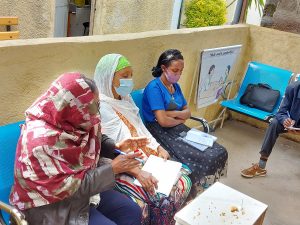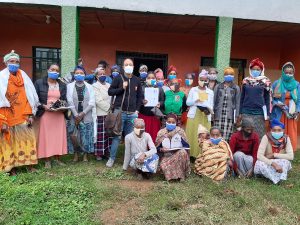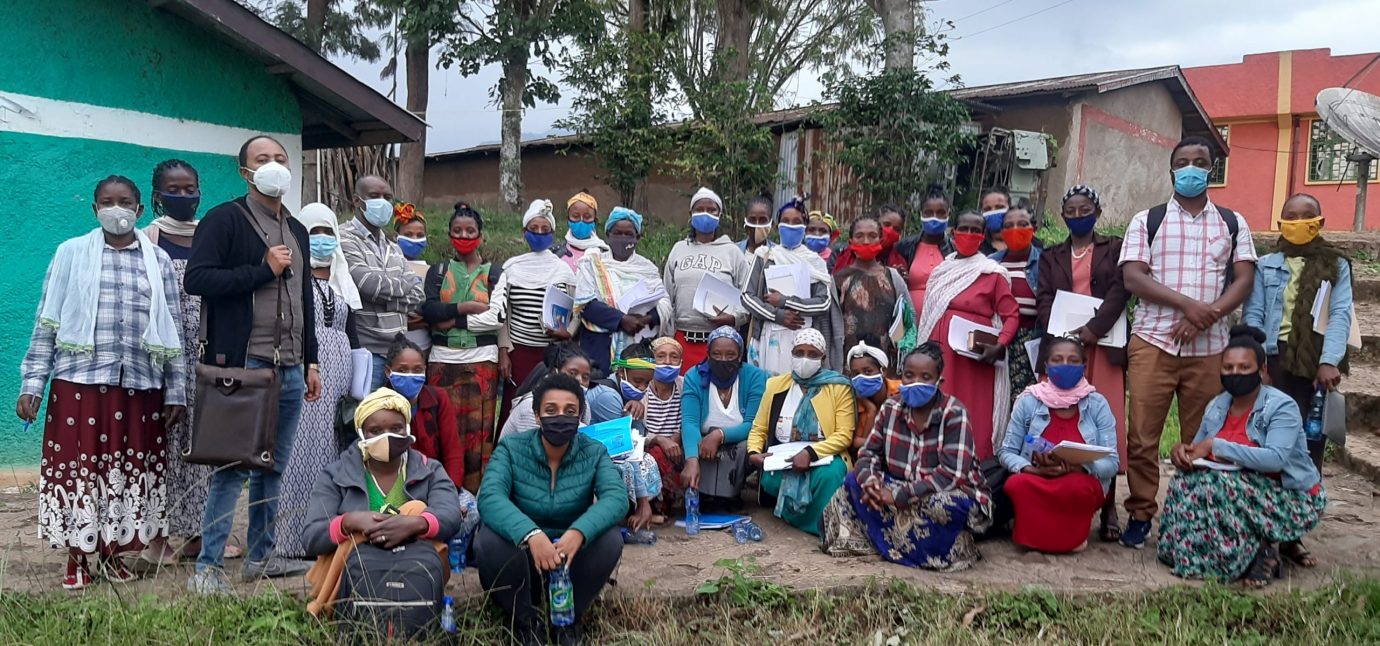In Ethiopia, female self-help associations, called “Iddirs”, help diagnose tuberculosis (TB) in children. These women receive training in which they acquire the necessary knowledge and skills to identify children at risk for TB and provide support in preventive treatment.
The training of the Iddirs is an initiative of KNCV Tuberculosis Foundation in collaboration with Love in Action Ethiopia (LIEA). It is part of the TB REACH Wave 7 project of Stop TB Partnership.
Ethiopia is a high TB-burden country, missing an estimated one third of all TB infections per year. Young children who are in close contact with contagious pulmonary tuberculosis, for example family members with TB, are at high risk of latent tuberculosis infection (LTBI). Which means that they are infected with the TB bacteria and can develop the disease TBC. The most important life-saving measure so far has been the screening of children whose family members have infectious TB and provide TB preventive treatment (TPT) to children with LTBI. This prevents the development of the TB disease and possibly dying from it.
Despite improvements, the treatment of latent tuberculosis in children remains a concern in Ethiopia. More than a third of eligible children under the age of five are not receiving the recommended preventive medication, and the completion rate of treatment as low as 12% was reported in some areas.
There is a shortage of treatment support and the actions taken to ensure that children complete treatment properly, are inadequate. This has several reasons:
- Low coverage of contact investigation in children under five years of age;
- Lack of awareness of the benefits of TPT and reluctance to provide drugs to “healthy children”;
- Structural barriers such as shortages of supplies, lack of transport and high turnover of health workers.
The initiative
To change this, KNCV Tuberculosis Foundation entered into a partnership with the local NGO Love in Action Ethiopia through the TB REACH Wave 7 project in Ethiopia. Together they employed a community-based service delivery model, using a rarely exploited approach to engage women-led local Civil Society Organization (CSO), called Iddirs. The iddirs trace and screen TB contacts and link them to TPT. This way more children under the age of five are protected against TB. This is happening in Gamo and Gofa zones of southern Ethiopia and in a sub-city in Addis Ababa.

Mothers play an important role in the medical treatment of their children. Proactive maternal involvement can help overcome the previously identified challenges. These mothers can be reached through the Iddir leaders and their volunteer networks, who are trained to conduct household contact tracing and link children who qualify for TPT with health facilities. They then support the treatment of the child through weekly home visits and daily text messages to the parents.
This collaboration between the national TB program , LIAE and the TB REACH Wave 7 project of the Stop TB Partnerships provided training and supplies for 278 female Iddir leaders and their volunteers. The training enabled them to:
- identify the main problems and have the knowledge and skills required to screen for household-based TB contact screening;
- identify child household contacts and link to health facility for TPT initiation;
- provide treatment adherence support and monitoring;
- understand the use of customized recording and reporting formats;
- organize and participate in meetings with the community and health facilities;
- and develop communication skills, such as giving speeches.
Despite delayed start of the project due to COVID-19, the project provided TPT to 397 children, treatment completion rate was 97% for the first cohort of enrollees, and side effects were rare.
The successful implementation of this project, with the commitment of Iddirs, demonstrates their role in the prevention and care of people and children affected by TB in the slums of Addis Ababa and in hard-to-reach areas of the Southern Nations, Nationalities, and People’s Region. Take Selamawit’s story for example, whose family has benefited directly from the efforts of the local Iddirs and their volunteer networks. Thanks to this project, the TB infections in her family were identified in time.

Empowering women and girls is a key focus of this project. The project conducted baseline gender assessment, provided transport and phone allowances for women volunteers, ensured gender disaggregated reporting of project data, set indicators for women empowerment, and monitored them regularly.
One of the participants of the training from Addis Ababa, Beza Akalu, said: “This training has shown me that I am a capable woman. My awareness of TB has changed completely and I am able to help my community to prevent it. I can’t wait to find children exposed to TB, link them to a nearby health facility for TPT, and then support them until they have completed their treatment. I think there is no work as blessed as saving lives of children”.
This project is supported by the Stop TB Partnership’s TB REACH initiative and is funded by the Government of Canada, the Bill & Melinda Gates Foundation and USAID.
This story was contributed by Abdulsemed Assefa, and Degu Jerene Dare with inputs from Dawit Assefa, Ahmed Bedru and Stephanie Borsboom.

